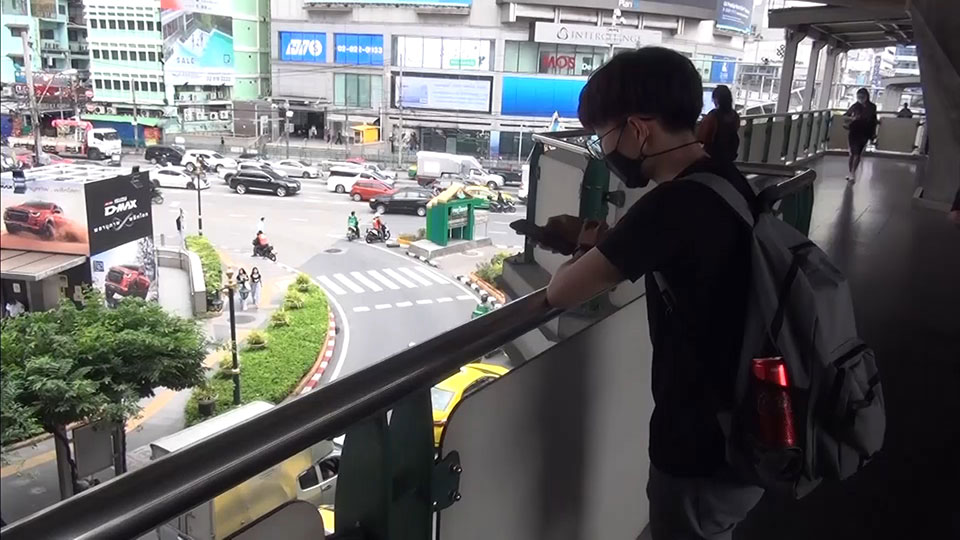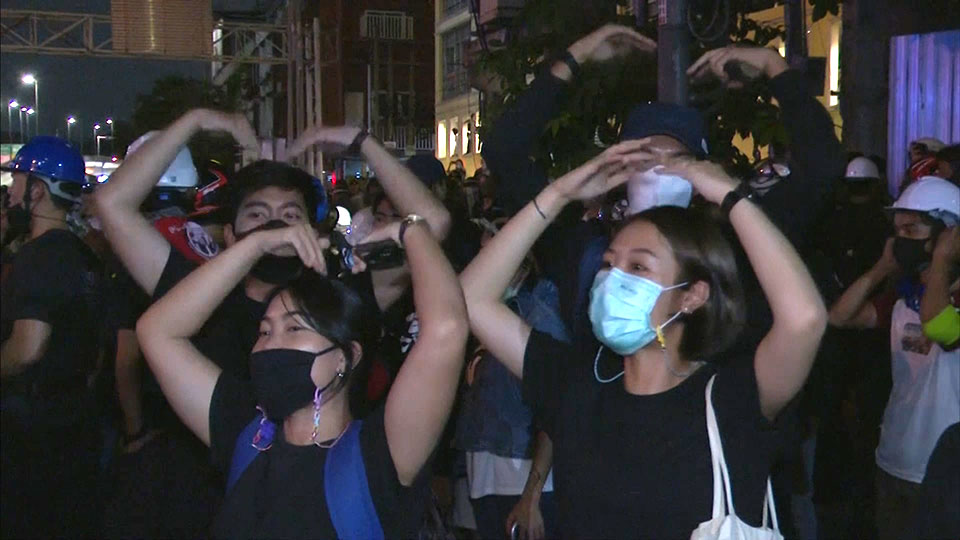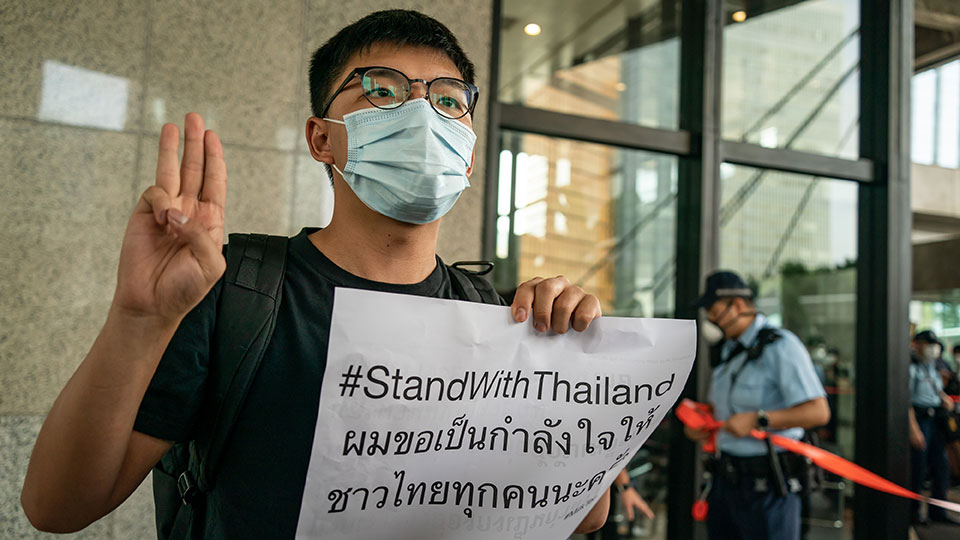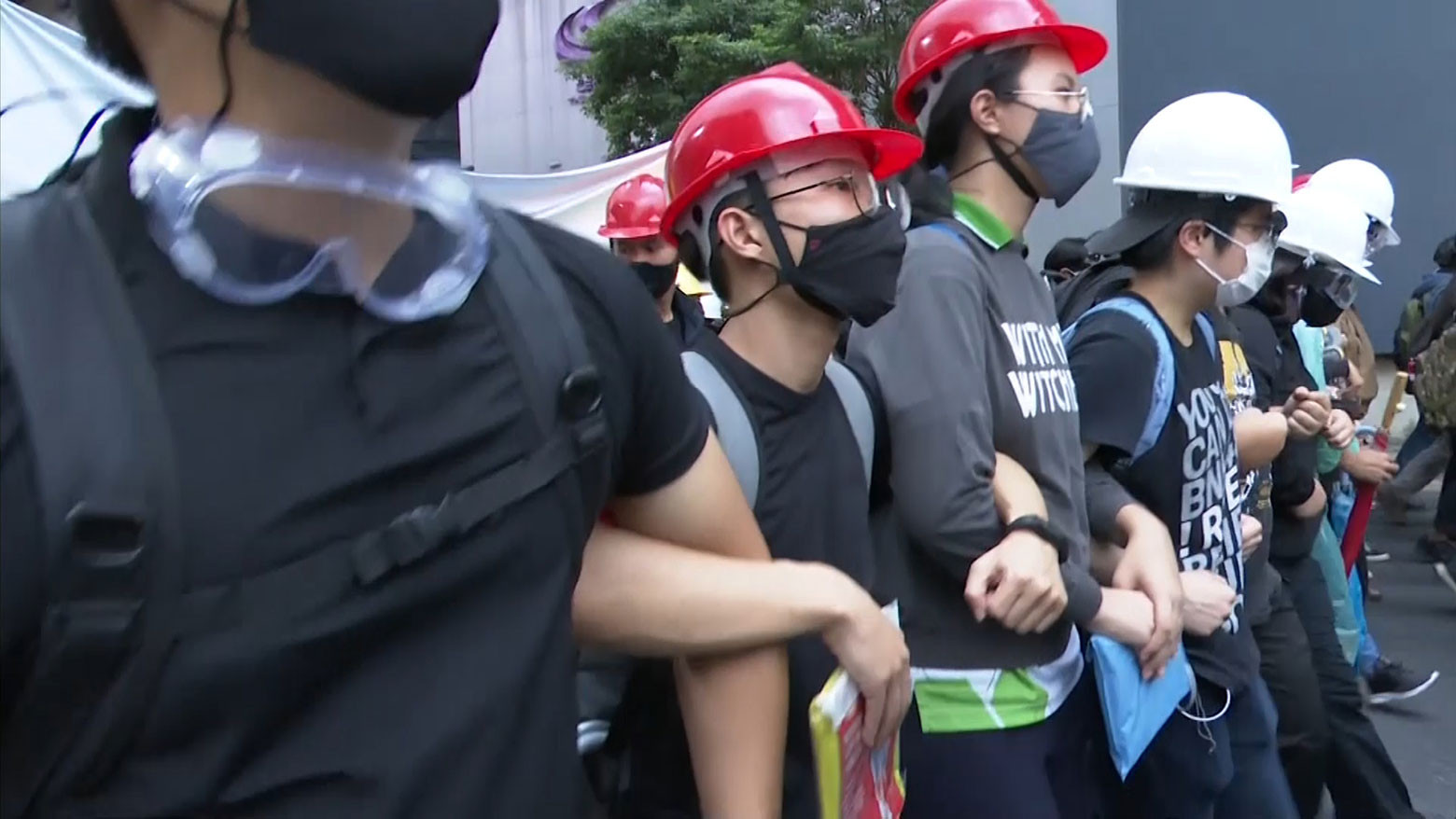They are using encrypted social messaging to organize protests and stay one step ahead of police. The movement continues unabated despite the arrest of some key leaders.
A hashtag #everybodyisaleader is trending on Twitter as the forefront groups, Free Youth and United Front of Thammasat and Demonstration, call for supporters to bring their own megaphones, meaning everyone who wants to make a speech can do so.
Following a crackdown by authorities, details of protests are released on short notice on different online platforms, including a secure messaging app, Telegram. Group messaging and the use of public social media channels enable quick communications that can reach a large number of people.
The methodology means the protest movement does not need specific leaders to organize rallies that pop up at a moment’s notice.
Protesters, most of them tech-savvy high school and university students, use Telegram to communicate, strategize and share updates on police activity.
One activist, a 26-year-old man who asks to be referred to as Ton-gla, has taken part in almost every anti-government protest since September. He waits for an announcement near a train station, and once he receives a message on his smartphone, springs to action.
“I’ve got the announcement,” says Ton-gla, who does not give his real name for fear of reprisals. “The organizers are calling for everyone to rally at Victory Monument.”
The monument fills up with young people within an hour, giving police little time to respond. Demonstrators line up and march in an orderly fashion.

Hand signals
Protestors are not just communicating online. During rallies, they use hand signals to get messages across tens of thousands of people.
“Hands over the head” means they need helmets for those on the frontline. A scissor-cutting gesture means they need pliers to cut police barbwires. By crossing their fingers, they show someone is injured.
A network of volunteers is on hand to respond to the gestures. They provide equipment and medical support, and keep a lookout for potential trouble from authorities.
Protesters also employ Chinese whispers to pass down messages from the front to the back of the crowd. They have recently added giant vinyl signs that direct the crowd to keep walking or stop.

Taking inspiration from Hong Kong
“This decentralized movement is partly inspired by the Hong Kong protests. Everybody is horizontally equal. Everybody is a leader,” says 25-year-old protest leader, Patsaravalee “Mind” Tanakitvibulpon, who is now a famous figure.
It is not just the methods that the two protest movements have in common. Hong Kong people are expressing solidarity with Thai protesters through online messages and public events. On October 19, prominent Hong Kong activist Joshua Wong led a protest outside Thailand’s consulate in Hong Kong, calling for global support for the growing pro-democracy movement in Thailand. The move prompted a hashtag #StandWithThailand.

On October 26, pro-democracy protesters marched to the German Embassy in Bangkok to appeal to the German government to investigate whether Thailand’s King Maha Vajiralongkorn exercised his political power during an extended stay in Bavaria.
Some critics thought that was a risky direction as Thailand’s lese-majeste law means that defaming the monarchy can be punishable by up to 15 years in prison. But the crowd numbers were just as big as previous gatherings, if not bigger. Many demonstrators persist with calls to reform the monarchy.
The student-led protests have transformed Thailand’s political landscape. New ways to organize events, share information, and help each other out are empowering activists to maintain the momentum.

